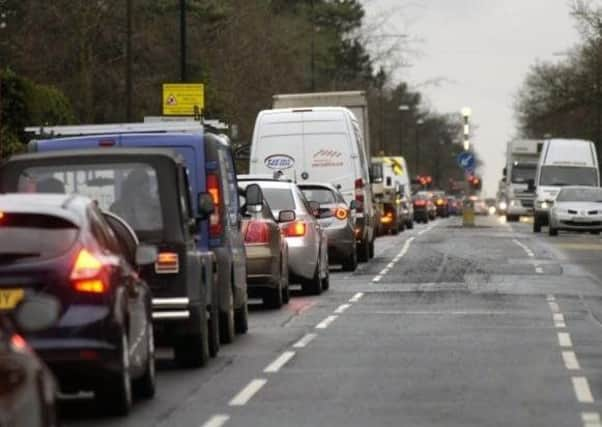Workplace '˜parking tax' plan for Leeds - but would it stop you driving in to work?


The measure is the latest in a raft of ideas being put forward by Leeds City Council to cut air pollution and reduce traffic congestion.
As previously reported, Leeds has been named one of the UK’s worst air pollution hotspots and is one of five cities ordered by the Government to introduce a Clean Air Zone (CAZ) by 2020.
Advertisement
Hide AdAdvertisement
Hide AdAccording to latest figures, around 680 deaths a year in Leeds are attributable to air pollution.
To tackle the problem, council chiefs are already considering bringing in a new city-centre levy for motorists, with vehicles that don’t comply with new greener engine standards required to pay a daily fee to enter the CAZ.
Other ideas include free parking for electric vehicles, and ‘retrofitting’ of commercial vehicles like taxis and lorries with greener technologies.
A cross-party scrutiny panel of councillors examining the proposals ahead of a public consultation has been told that some of the ideas are “likely to be controversial”, but that “few people will deny the importance of air quality to health and the desirability of reducing emissions”.
Advertisement
Hide AdAdvertisement
Hide AdSpeaking to the panel at Leeds Civic Hall yesterday, Neil Evans, director of environment and housing, admitted the introduction of the so-called “workplace parking levy” was potentially a “complicated issue”.
He said although it was ”unlikely” to be in place by 2020, the council “has to look at other measures apart from the CAZ” in case that alone is not enough to tackle the wider problem.
The office parking levy is a charge on employers who provide workplace parking. Although employers are responsible for paying the levy, they can choose to reclaim part or all of the cost from staff.
In Nottingham, where the charge has already been introduced, it is also helping to pay for major transport infrastructure initiatives.
Advertisement
Hide AdAdvertisement
Hide AdAndrew Hall, from Leeds City Council’s transport planning department, said the Nottingham scheme had taken several years to implement and it would “definitely” not be in place in Leeds by 2020.
“It’s a wider strategy tool which might sit alongside other measures but potentially isn’t a solution to air quality {on its own},” he said.
He added that introducing slower speed limits as another way of reducing emissions had also been looked into, and factors like the design of speed humps to help smooth the flow of traffic taken into account, however the impact on air quality had been “marginal”.
A wide ranging scoping study of air pollution levels is currently underway in Leeds, with many of the busiest roads being monitored.
Six separate AQM (air quality management) zones have also been introduced to reduce pollution in known city hotspot areas.
A full consultation is expected to be launched early next year.